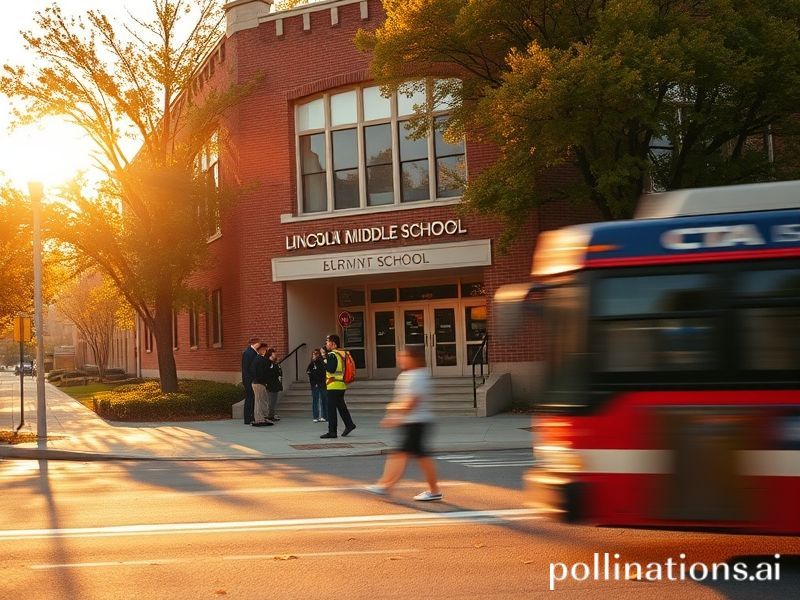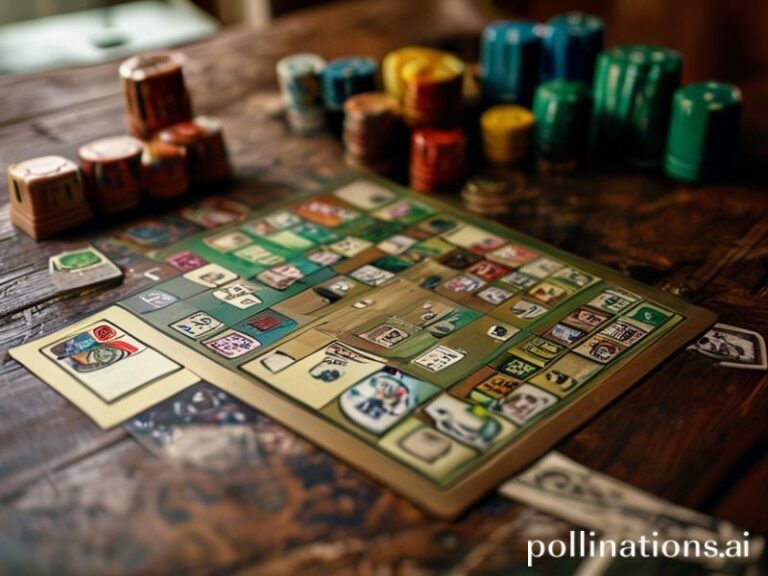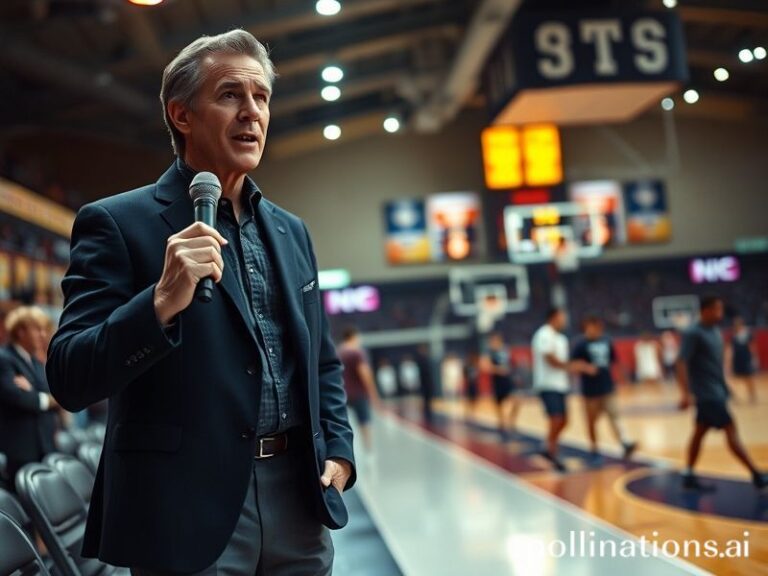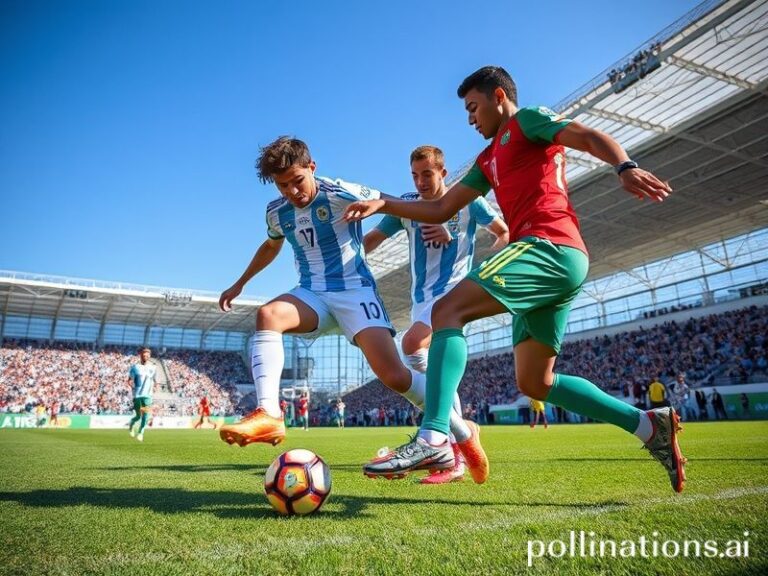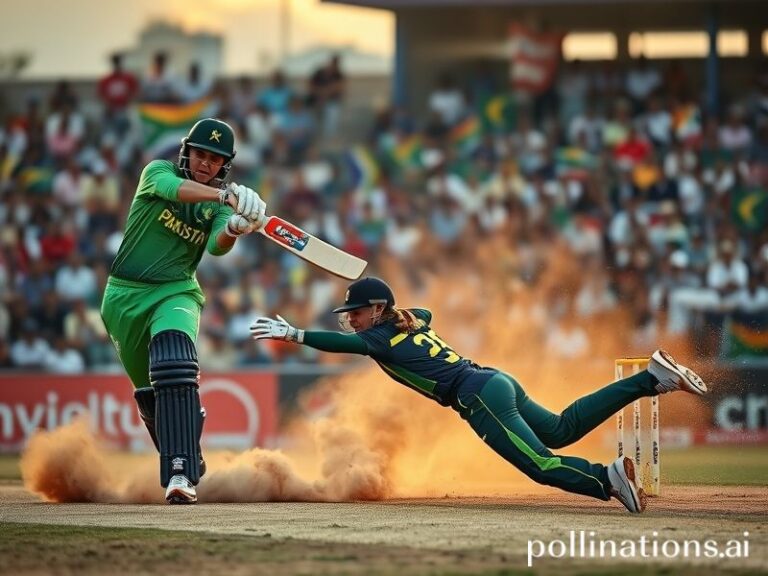Inside Lincoln Middle: The Tiny Illinois School Quietly Shaping Global Trade, Tech, and Tater Tot Diplomacy
Lincoln Middle School, Berwyn, Illinois—population 57,250 if you’re counting, 57,249 if you discount the mayor’s ego—would appear, at first glance, to be the very antithesis of global consequence. A squat brick rectangle squatting on the prairie like a stubborn toad, its playground still scarred by the 1987 tornado that politely skipped the liquor store but decimated the tetherball poles. Yet here, in a suburb whose most exotic culinary export is a deep-fried churro stand, the machinery of the wider world is quietly grinding its gears.
Consider the eighth-grade social-studies class, where Ms. Ramirez (a woman who can recite the Treaty of Westphalia in her sleep and still manage to supervise thirty-three pubescent arsonists) has assigned a Model United Nations project. The topics: Arctic sovereignty, semiconductor embargoes, and whether TikTok should count as a sovereign nation. The delegates—fresh from a lunch whose carbon footprint rivals Luxembourg—are earnestly debating lithium tariffs while sitting under handmade posters that read “Kindness Is My Superpower.” Somewhere in Brussels, an actual trade attaché spills espresso on his shirt; he does not know that his fate is being decided by a 13-year-old in orthodontic headgear who just learned what cobalt is.
International significance, you scoff? Allow me to adjust the zoom lens. Last month, Lincoln’s robotics team qualified for the FIRST Global Innovation Awards—an event held, with no apparent irony, in Dubai, a city that imports sand. Their robot, affectionately nicknamed “Detention,” was built from discarded cafeteria trays and an Xbox Kinect. It sorts cafeteria waste into recyclables, compostables, and existential despair. The code was written largely by Diego Morales, whose parents crossed three borders so their son could one day teach a machine to distinguish between a juice box and the American dream. The UAE delegation greeted Detention with polite golf claps and a discreet side-eye at the robot’s duct-tape aesthetic, but the Emiratis will be sourcing that exact same Microsoft sensor for their Mars rover prototype. Globalization, it turns out, begins in the janitor’s closet.
Meanwhile, the school’s ESL corridor—once a remedial afterthought—now hums with Pashto, Ukrainian, and Mixtec, languages whose speakers have fled wars engineered in rooms far removed from Berwyn but whose consequences arrive in the form of shell-shocked twelve-year-olds. Lincoln’s solution? A peer-buddy program that pairs a Syrian refugee with a second-generation Polish American whose grandfather still calls the neighborhood “the old country.” Together they navigate the labyrinthine U.S. cafeteria pizza policy (one slice per student unless you have a note from a cardiologist). The program’s motto—“Different Languages, Same Detention”—is printed on T-shirts made in Bangladesh, shipped through the Suez Canal, and sold via an Amazon storefront whose algorithm thinks you might also enjoy a flamethrower.
Even the lunch menu has become a geopolitical minefield. When the district swapped suppliers from a Kansas beef conglomerate to a Canadian plant-based startup, local Facebook groups exploded with accusations of “globalist tofu tyranny.” The Canadian ambassador, ever the diplomat, sent a crate of maple-syrup-laced veggie nuggets as a goodwill gesture. They remain uneaten in the walk-in freezer, right next to the surplus cheese the USDA still ships because Cold War habits die harder than disco.
And so, on any given Tuesday, while the world’s great powers bicker over grain corridors and undersea cables, Lincoln Middle School conducts its own miniature foreign policy: trade negotiations at the vending machine, proxy wars over the last basketball, and a climate accord reached when someone finally agrees to close the door to the science wing. The stakes are small, the hormones large, and the lessons durable—namely, that every empire eventually ends up arguing about cafeteria tater tots.
In the end, the planet’s grand narratives—supply chains, migration, climate collapse—filter down to fluorescent hallways where a child learns that geopolitics smells faintly of bleach and pizza grease. If you listen closely above the buzz of failing fluorescent lights, you can almost hear the future being debugged one adolescent eye-roll at a time.

